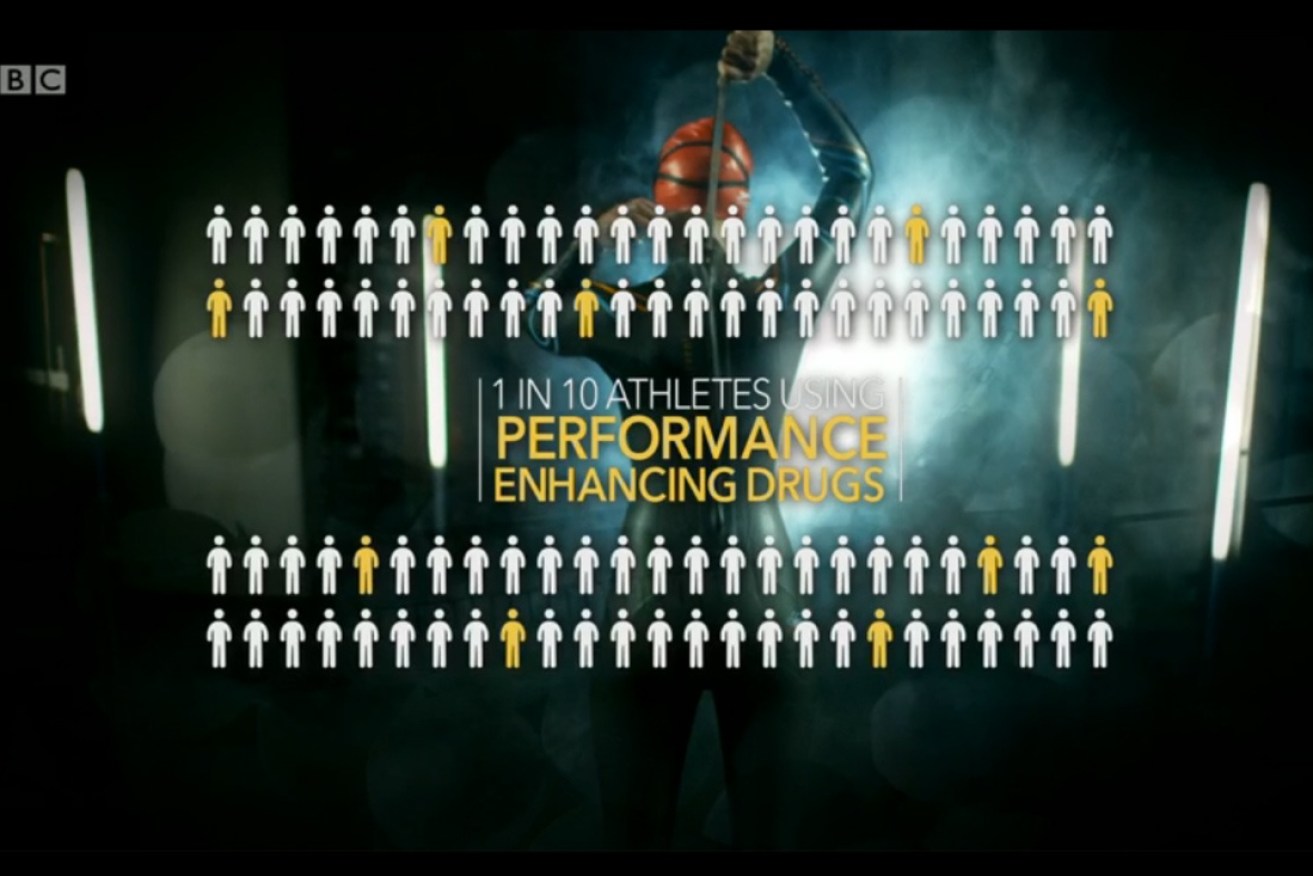Olympics: the incredible health risks dopers take


The documentary paints a grim picture. Photo: Doping In Sport
Athletes – and their coaches – who want to cheat will do anything to enhance their performance.
They’ll beg scientists to allow an unproven gene therapy – used to create the muscle-bound, no exercise “Schwarzenegger Mouse” in the laboratory – to be tested on them.
They’ll use unidentified substances concocted in filthy basement labs and bought online or peddled by cocaine and heroin dealers, totally disregarding what they could do to their bodies in the long term.
And they’ll do anything to cheat the drug tests – including buying fake penises and filling them with fake urine from a packet or with urine from someone else who isn’t using banned drugs – so they can keep using.

Athletes sometimes try and use urine from others in tests. Photo: Doping In Sport
They are just some of the startling revelations in the documentary Doping In Sport, which screened on SBS on Monday (and is available on SBS On Demand).
Presenter, Dr Zand van Tulleken, from the BBC’s Horizon science series, paints a grim picture of a doomed drug-testing regime being rorted by elite athletes.
He says an estimated one in 10 athletes are using performance-enhancing drugs, according to statistics, but admits that is probably a gross under-estimation.
Then there’s the estimated “tens of millions” of amateur athletes worldwide who follow the lead of their sporting heroes – or are using because they just want to ”look good”.
The health epidemic that is on the cards
Steroid use is, of course, nothing new.
It’s been around since the 1980s but what’s particularly frightening is that the young athletes who used the drug in those days are now moving into middle age and are presenting with devastating health problems.
Harvard Professor of Psychiatry, Harrison Pope, who has been researching steroid use since it began, predicts a health epidemic on the same scale as caused by cigarette smoking and says it has only just begun.

Professor Pope has a worrying prediction. Photo: Doping In Sport
Heart problems, kidney failure, depression, lack of sex drive and brain damage are all now emerging in ageing steroid users – even those who haven’t touched the drugs in years.
And those drugs were at least approved for use in humans for specified medical conditions.
According to the film, steroids are now “outdated and old-fashioned” as new “molecules” are created and sold without any regulation.
Dr van Tulleken trawled the internet and revealed just how easy it is for amateurs peddling potential poison to showcase their wares – even demonstrating how simple it is to use them.
Some do admit the drugs are not fit for human consumption but their message is clearly that it’s a risk worth taking if you want to win or to “look good”.
The Montgomery example
One of the most telling moments in Dr van Tulleken’s film (which also explores currently legal methods of performance enhancement) is his meeting with his sporting hero, former American sprinter Tim Montgomery.

Tim Montgomery celebrates his world record. Photo: Getty
Montgomery won a gold medal in the 4x100m relay event at the Sydney Olympics and then claimed the 100m world record.
Montgomery ran the sprint in just 9.78 seconds in Paris in 2002.
Though he never tested positive, Montgomery was banned because of evidence from a laboratory and he later admitted taking testosterone and human growth hormones for 17 months as part of his “Project World Record”.
Montgomery explained that drugs took him “straight to the front where I belonged” and that he “didn’t care what it took” to get there.
He admits he’s paying the price now as his body shows the effects but he appears to have no regrets, saying the drugs made him a winner.
“I still call myself a world record holder,” he said.
“Only a slim margin of people in the 100 metres are not using drugs and that’s why sprinters don’t bad-mouth me.”








